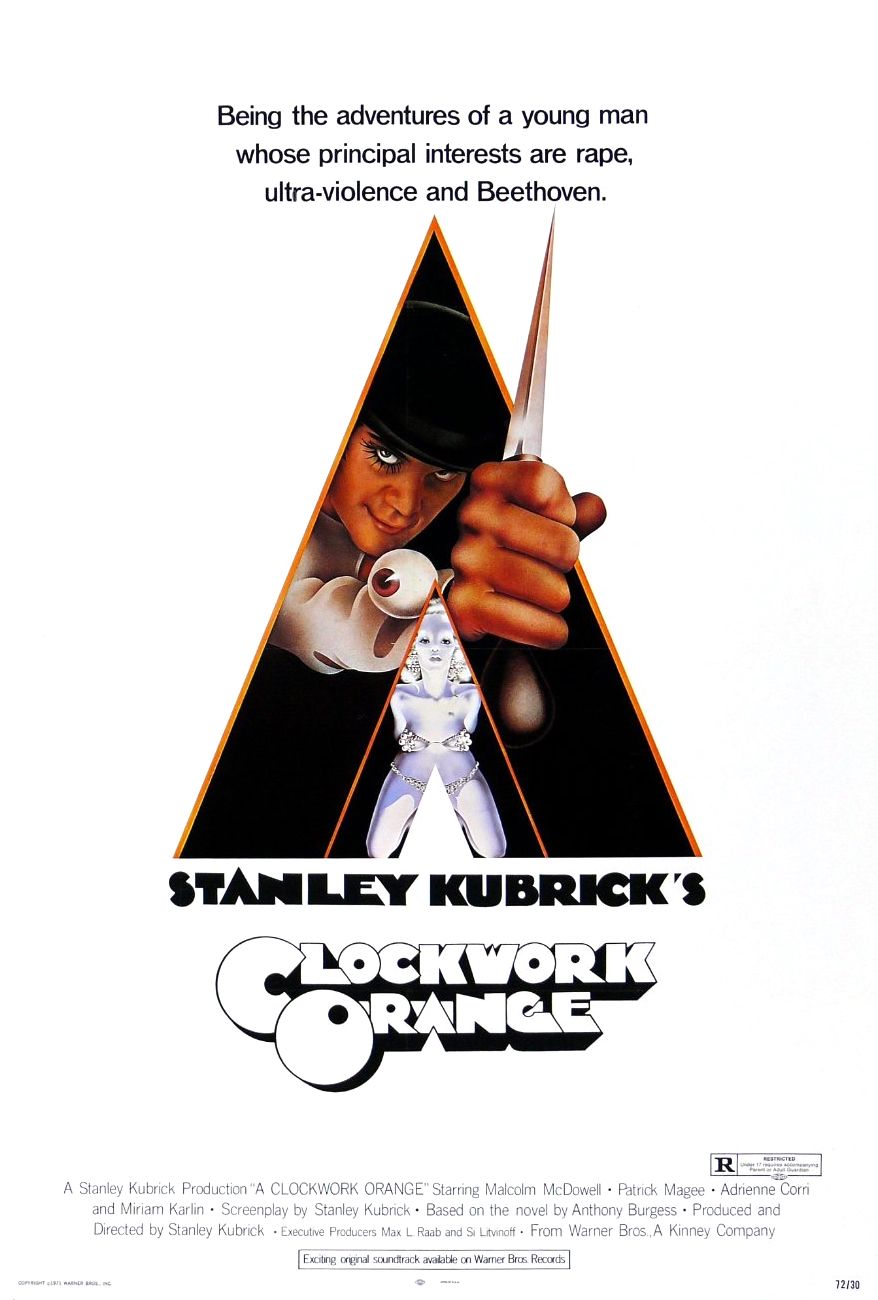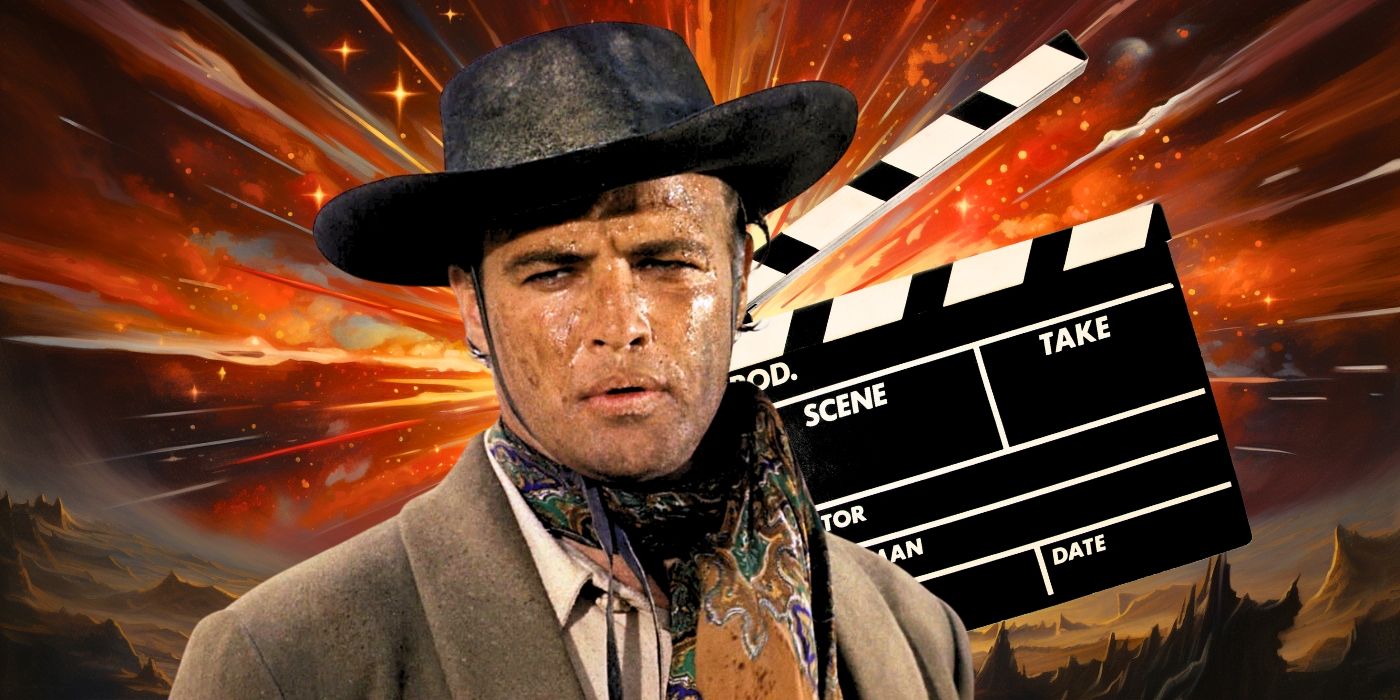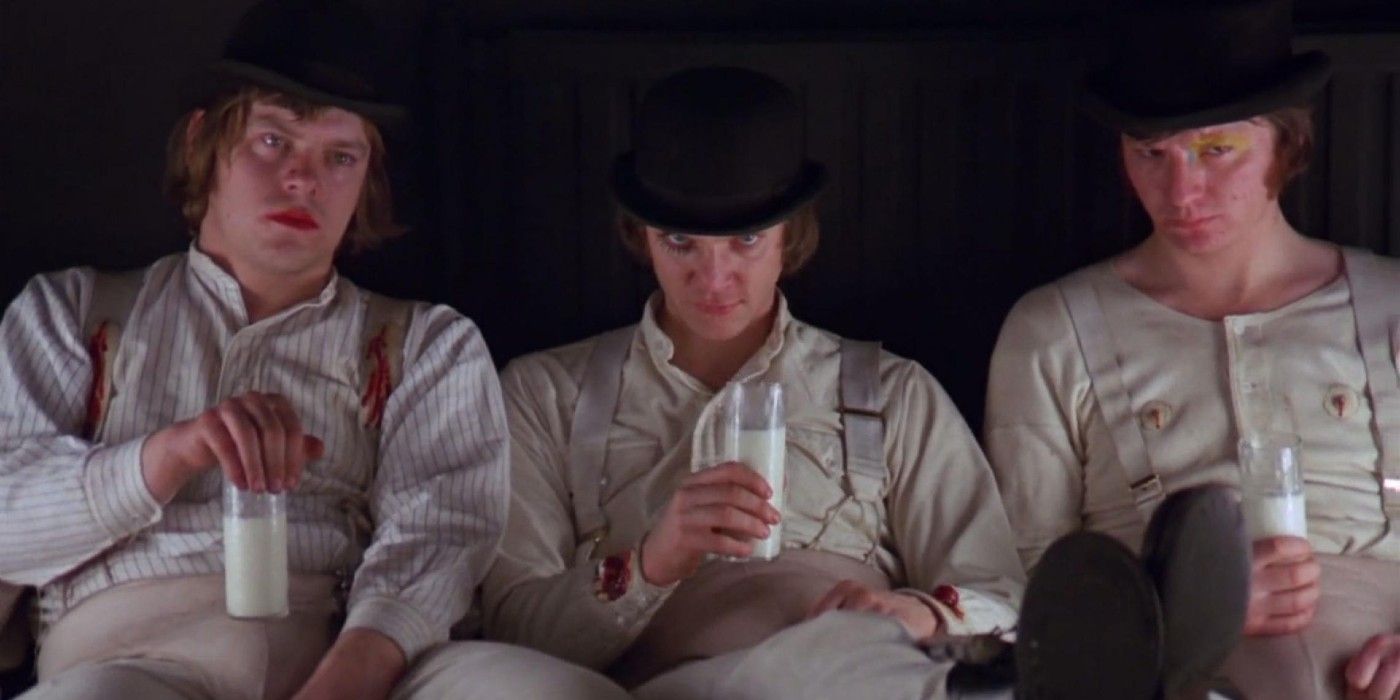The Big Picture
- Stanley Kubrick’s withdrawal of
A Clockwork Orange
from UK theaters showed his unparalleled individual power and unwavering commitment to his vision. - While some praised Kubrick’s fearlessness in depicting disturbing human behavior, others felt he fetishized violence and lost sight of humanity.
- Despite the controversy and uproar surrounding the film, Kubrick refuted claims of a causal link between film violence and real-world violence.
Largely considered one of the greatest filmmakers of all time, Stanley Kubrick was famously uncompromising and enigmatic in executing his singular vision of cinematic storytelling. Lauded for challenging audiences and pushing the boundaries of the medium, the Bronx native was also known for attracting controversy. And while several of his films would garner backlash, nothing compared to the uproar generated over 1971’s A Clockwork Orange.
Adapted from Anthony Burgess‘ 1962 novel of the same name, A Clockwork Orange caused quite a stir in the United Kingdom after several brutally violent crimes were alleged to have been inspired by the film. Despite doing solid business for months upon release, Kubrick, in an unprecedented display of individual authority, had his film withdrawn from British theaters for decades. But was it an act of self-censorship, or did the legendary filmmaker succumb to the pressure of hyper-critical media and moral panic?

A Clockwork Orange
In the future, a sadistic gang leader is imprisoned and volunteers for a conduct-aversion experiment, but it doesn’t go as planned.
- Release Date
- December 19, 1971
- Director
- Stanley Kubrick
- Cast
- Malcolm McDowell , Patrick Magee , Michael Bates , Warren Clarke , John Clive , Adrienne Corri
- Runtime
- 136 mins
- Main Genre
- Crime
- Writers
- Stanley Kubrick , Anthony Burgess
- Studio
- Warner Bros.
Stanley Kubrick Dealt With Controversy Long Before ‘A Clockwork Orange’
As an artist of such rare conviction and vision, perhaps it’s no surprise that Stanley Kubrick would ruffle some feathers throughout his iconic career. The first of such controversies arose in 1957 when his seminal anti-war film, Paths of Glory, hit theaters. A World War I tale about a French officer (Kirk Douglas) tasked with leading his troops on a suicidal mission, the film was scathing in its depiction of military elites and the corrupt nature of power dynamics. Initially met with disdain by French censors over its depiction of high-ranking officers, Paths of Glory wouldn’t be released in the nation until 1975. It would also be banned in Switzerland and Spain until 1978 and 1986, respectively.
The year 1962 would also mark a contentious period for Stanley Kubrick when he set his sights on bringing Vladimir Nabokov‘s 1955 novel, Lolita, to the screen. Following the exploits of a middle-aged (James Mason) man and his infatuation with a 14-year-old girl (Sue Lyon), the film performed well with audiences but divided critics over its subject matter. Released during the era of the Hays Code and provoking ire from the Roman Catholic League of Decency, Kubrick’s film once again placed him in the cross-hairs of controversy. Reflecting on Lolita a decade later, he admitted to Newsweek that he “probably wouldn’t have made the film” had he known it would cause such a ruckus.
‘A Clockwork Orange’ Took Kubrick to New Heights of Notoriety
Despite navigating choppy waters with Paths of Glory and Lolita, nothing could’ve prepared Stanley Kubrick for the level of venom and vitriol he’d encounter with the release of A Clockwork Orange. Debuting in December 1971, his film about the shocking exploits of Alex (Malcolm McDowell), a young and ultraviolent individual who’s put on a dystopian society’s path to rehabilitation, was a box office success. Critics and the media more broadly, however, were left polarized. While some appreciated the film’s fearlessness and Kubrick’s unwavering capacity to place disturbing human behavior directly under a cinematic microscope, others were repulsed and, in some cases, aimed their criticism directly at the filmmaker himself.
Writing for The New Yorker, renowned critic Pauline Kael was particularly scathing in asking, “Is there anything sadder — and ultimately more repellent — than a clean-minded pornographer?” In a similar assessment, Roger Ebert proclaimed, “Alex has been made into a sadistic rapist not by society, not by his parents, not by the police state, not by centralization and not by creeping fascism — but by the producer, director and writer of this film, Stanley Kubrick.” Uniting the film’s detractors was a perception that Kubrick had fetishized the film’s shocking acts of violence and sexual assault, sacrificing the humanity and dignity of Alex’s victims by aligning audiences a little too subjectively with his horrendous point of view.
Though Kubrick had already cultivated a reputation as a provocateur, his examination of themes surrounding society’s impact on the individual, the human tendency for abhorrent behavior, and the complications inherent to governmental control shook some to their core. And as A Clockwork Orange continued raking it in at the box office, several heinous crimes led to a perception that Kubrick’s film was inciting violence. As a result, the filmmaker was subjected to relentless pressure from the media and society at large, and he’d ultimately resort to extreme measures to regain some semblance of peace and normality.
Stanley Kubrick Withdrew ‘A Clockwork Orange’ From British Cinemas
While efforts to connect several brutal crimes to A Clockwork Orange would be made, two particular incidents gained a great deal of attention in local media. According to Luxury London, a 16-year-old male who committed murder was said to have displayed behavioral similarities to that of Alex in the film, though it was later determined that the youth hadn’t even seen A Clockwork Orange. In addition, the sexual assault of a 17-year-old female by a group of teenagers was linked to the film because, as Alex does in the film, they were alleged to have sung Singin’in the Rain while committing their horrible crime.
With local media, prosecutors, judges, and politicians piling on, seeking a sacrificial lamb they could use to provide the public with a simple explanation for complex societal ills, Kubrick outright rejected the notion that his film was responsible for such behavior. He told Michel Ciment of Positif:
“
I know there are well-intentioned people who sincerely believe that films and TV contribute to violence, but almost all of the official studies of this question have concluded that there is no evidence to support this view. At the same time, I think the media tend to exploit the issue because it allows them to display and discuss the so-called harmful things from a lofty position of moral superiority.”
But regardless of Kubrick’s steadfast position on the notion of causal links between film violence and real-world violence, the damage had been done. According to The Guardian, Kubrick’s wife, Christiane, confirmed that the media firestorm surrounding A Clockwork Orange led to death threats on her husband. Feeling immense pressure and fearing for the safety of himself and his family, he ultimately decided to have his film pulled from British cinemas.
‘A Clockwork Orange’ Was Effectively Banned in the UK for 27 Years
Many influential filmmakers have come and gone since cinema’s inception, but arguably Stanley Kubrick’s withdrawal of his film from theaters displayed a level of incomparable individual power that remains unprecedented to this day. On his authority beginning in 1973, A Clockwork Orange was taken out of circulation in the UK, and it would develop a near-mythical status as a piece of filmmaking audiences were forbidden to see. Kubrick remained so committed to keeping it out of circulation that, with the backing of Warner Bros., he led the prosecutorial charge against North London’s Scala Cinema when it illegally screened the film.
For 27 years, A Clockwork Orange was an underground sensation of sorts, and UK citizens could only experience it via VHS copies and prints of varying quality that were acquired through international markets. It wouldn’t be until the spring of 2000, one year after Kubrick’s death at age 70, that the restrictions on the controversial film were lifted. Unsurprisingly, there was no sudden uptake in violence or unrest upon the film’s reemergence in the UK, but rather hordes of moviegoers eager to witness a powerful piece of cinema that had carried the weight of stigma for so long.

The Only Movie Marlon Brando Directed Was a Stanley Kubrick Western First
Marlon Brando’s first (and last) directorial project is an underrated classic that almost looked very different.
Regarding the relationship between art and reality, Stanley Kubrick surmised, “To try and fasten any responsibility on art as the cause of life seems to me to put the case the wrong way around. Art consists of reshaping life, but it does not create life, nor cause life.” With that notion in mind, was his withdrawal of A Clockwork Orange from British cinemas an example of acquiescence to societal pressure or a form of self-censorship? One could argue it was a bit of both. Considering Kubrick’s reputation as a visionary with seemingly unshakable artistic conviction, such an action could be deemed a peace offering in ceding to external pressure. At the same time, who can blame the man for wanting to do whatever he could to mitigate the very kind of societal madness and cynicism his film set out to comment on in the first place?
A Clockwork Orange is currently available to stream on Apple TV+ in the U.S.


